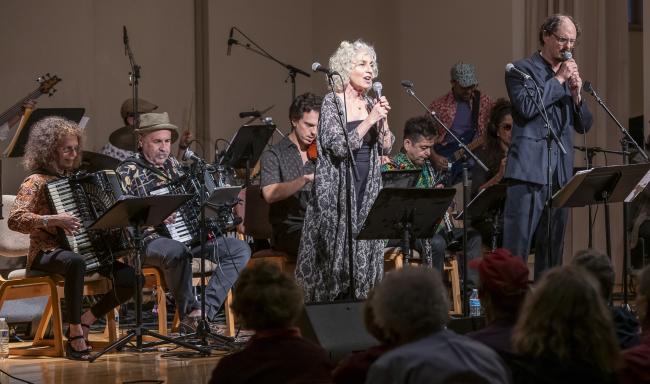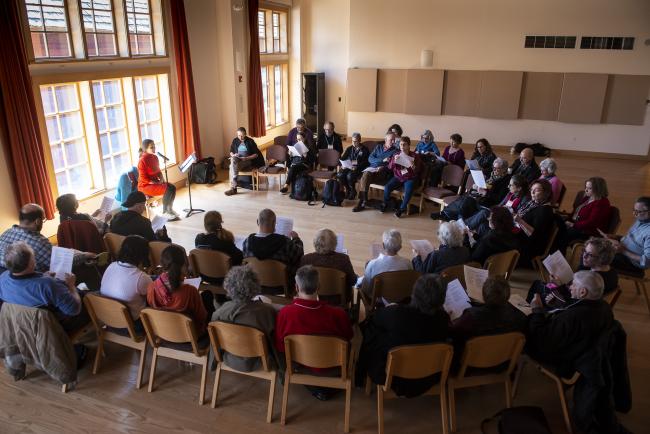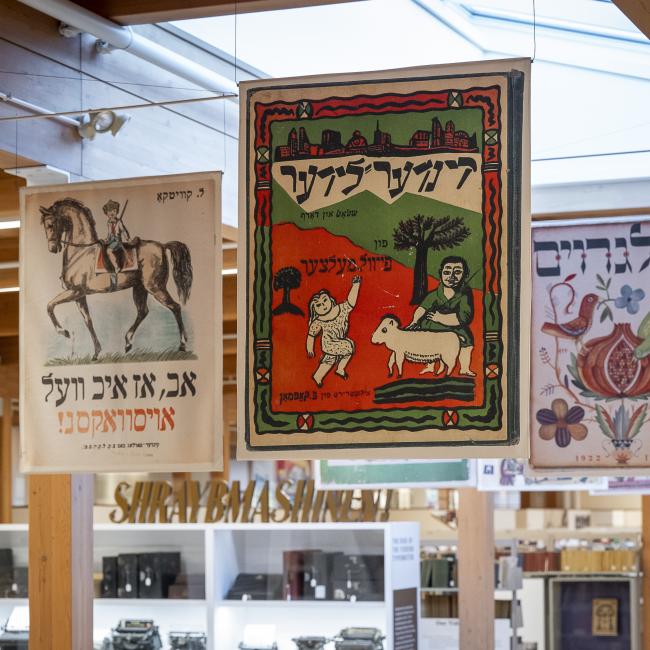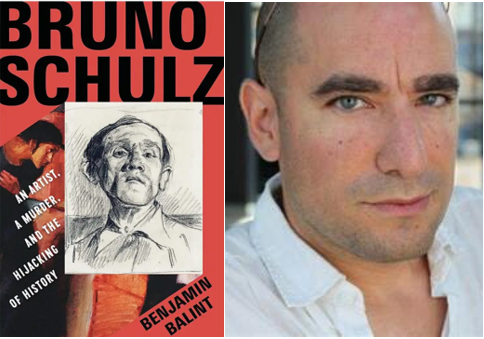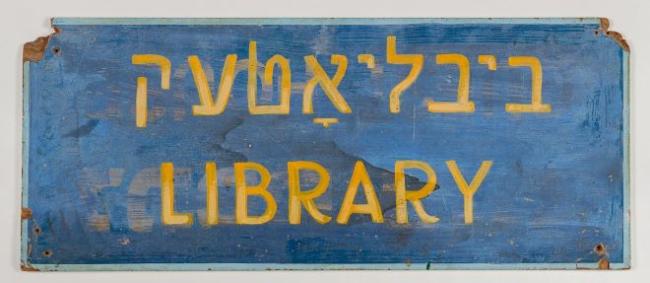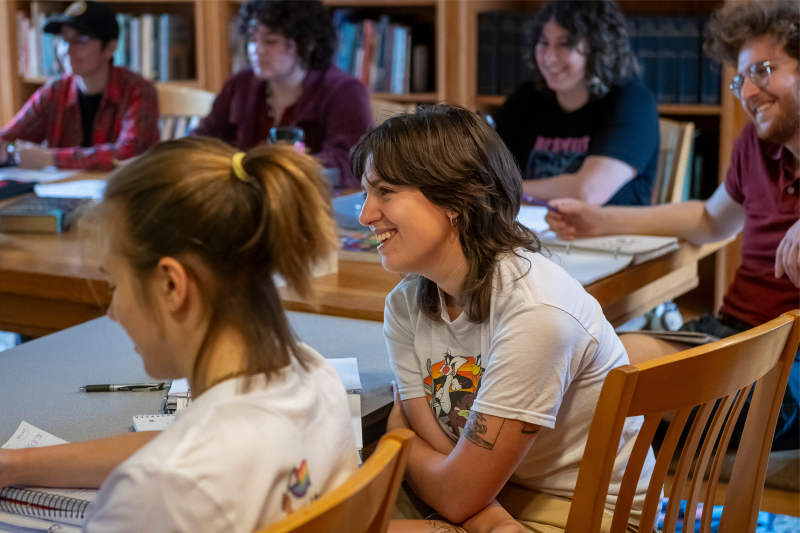
Yiddish Book Center
Celebrating Yiddish Language & Culture
Scroll down
פֿרישע נײַעס Now
Yidstock: The Festival of New Yiddish Music | July 11–14, at the Yiddish Book Center
Help us Bring Yiddish Cultural Programming to Local Communities
On View | Yiddish: A Global Culture
IN-PERSON & VIRTUAL TALK | Bruno Schulz and the Hijacking of History, with Benjamin Balint | Sunday, July 21 @ 2:00 p.m. ET, at the Yiddish Book Center and livestreamed via Zoom
The Shmooze | Nathan-ism: The Story of Artist Nathan Hilu
Donor Profile: Helen Pollack
Support Yiddish Culture!
Your donation will help safeguard our books and support Yiddish literature and culture for future generations.
Focus On Jewish Summer Camps
Like many American (or in this case, Canadian) Jews, I have fond memories of summer camp. Indeed, few experiences are so thoroughly American, and so thoroughly Jewish, that it’s difficult to tell where one ends and the other begins. In popular culture—think of movies like Wet Hot American Summer—the entire summer camp experience is virtually coded as Jewish, though surely there must be a few non-Jewish camps out there as well. And it’s not like there is just one variety of Jewish summer camp—from camps affiliated with religious denominations, to secular institutions, to even, yes, Yiddishist outfits, Jewish camps have come in all sorts of flavors. And given that camping has been such an integral part of the American Jewish experience, it’s no surprise that it’s well reflected in our archives. Here are a few of the gems.
אויסגעקליבן Handpicked Claire Breger-Belsky

Each month, the Yiddish Book Center asks a member of our staff or a friend to select favorite stories, books, interviews, or articles from our online collections. This month, we’re excited to share with you picks by Claire Breger-Belsky, the 2023–24 translation and bibliography fellow at the Yiddish Book Center.
“Cribside: A Dramatization of Life in Politics,” Yente Serdatsky, translated by Jessica Kirzane
This short dramatization by Yente Serdatsky balances interpersonal relationships with sharp societal critiques. It’s a fascinating, insightful, and sad scene, and I find myself focusing on something different every time I read it: the language, the translation, the political dimension, the gender politics, the relationships between the characters, or the shape of the action. And as someone with a background in theater, I’m always excited to see more Yiddish drama—especially by women—appear in English translation.
Der alter fun Lompaduni, by Yuri Suhl, illustrated by William Gropper
This slim collection of five children’s stories by Yuri Suhl, illustrated by William Gropper, has been one of my favorite books in our collection since I first saw it. Published in Wrocław, Poland, in 1948, the text of each story is printed in a different color, and bold, vibrant illustrations stretch across its pages. (My personal favorites: the starry sky spread across pages 4 and 5 and the personified letters of the alef-beys, brought to life on pages 52–54.)
Celia Dropkin’s Paintings
Recently, I’ve been reading about Yiddish artist Ray Faust, whose work is exhibited here at the Center. Though Faust is primarily known for her visual art, I’ve been particularly interested in her writing and how it connects to her painting. This article about Celia Dropkin’s paintings is in some ways the inverse case: I hadn’t known that Dropkin, best known as a poet, was also a painter. I love this glimpse into the breadth of Dropkin’s creative work beyond her writing—and, of course, the chance to see paintings themselves, and to imagine them in relation to the poems they accompanied.
Literary evening with Rokhl Korn
When I was an intermediate Steiner student, I worked with the Frances Brandt recordings for my internship project and realized how incredible a resource they are. I love going to poetry readings, and it’s wonderful that through these recordings I have the chance to listen to Yiddish poets and writers reading their own work, to hear how they understood the cadences of their writing. This particular recording—a night in honor of the publication of Rokhl Korn’s 1977 poetry collection Farbitene vor (A Changing Reality)—is one of a handful featuring Rokhl Korn reading her lovely, striking poetry, and it’s been segmented into titled tracks by poem, so you can track down what she’s reading and follow along.
Stay up to Date!
Sign up to receive Yiddish Book Center news, podcasts, features, and oral histories right to your inbox.

